#Rv
Junkyard Find: 1987 Toyota Conversion Van
Chrysler revolutionized the American family-hauler world in the 1984 model year when the Plymouth Voyager and Dodge Caravan minivans first appeared. That same year, Toyota began selling Americanized versions of its LiteAce/ TownAce/ MasterAce Surf vans over here, attracting less attention but moving enough of them that I still see them during my junkyard travels. Here's an '87 that received the camper-conversion treatment, now residing in a Northern California car graveyard.
Rare Rides: An All-wheel Drive Chevrolet Astro RV From 1991
The Rare Rides series has touched on recreational vehicles twice in the past, when it featured a BMW-powered Vixen, and the custom fiberglass hodgepodge which was the MSV.
Today’s RV is smaller than either of those, but it can also fit into normal parking spaces. It’s the 1991 Provan Tiger GT.
Rare Rides: The Crazy 1998 MSV, an RV That Time Forgot
Look at the large creature before you. A fiberglass cacophony of components from various manufacturer parts bins, known as the MSV. Initially, I thought the short acronym could only mean My Special Van, but those letters actually represent the company behind this beast: Mauck Specialty Vehicles.
Hop in the back, and we’ll embark on a voyage to… recreation.
Junkyard Find: 1978 Toyota Dolphin Mini-Motorhome
The third-generation Toyota Hilux pickup (called the “Toyota Truck” in the United States) was a legend of reliability and frugality well into our current century, and plenty of small motorhomes were built on its sturdy platform. You’ll still see them occasionally today, but the skin-crawling ickiness of tenth-owner RVs tends to mean the end comes quickly when they wear out. Here’s one that took nearly 40 years to reach that point, now residing in The Final Campground: a self-service wrecking yard near Denver.
Junkyard Find: 1967 Chevrolet P20 Adventure Line Motorhome
Back in the 1960s and 1970s, quite a few Midwestern RV manufacturers would take new Chevrolet Step-Vans and build them into motorhomes. Most spent productive decades ferrying retirees between Michigan and Florida, then settled into long-term retirement in driveways and dirt lots, serving as homes for many generations of raccoons, possums, and wasps.
Here’s a Kansas-built P20-series RV in the San Francisco Bay Area, giving up some of its components while awaiting the cold steel jaws of The Crusher.
Junkyard Find: 1972 Ford Econoline 300 Camper Van
After yesterday’s 1972 Mercury Junkyard Find, it makes sense— in some circles— to stick with model-year 1972 vehicles this week. With that in mind, here’s a very biohazardous second-gen Ford Econoline that I braved without benefit of a space suit. I’m pretty sure I didn’t catch hantavirus, scabies, or dioxin poisoning, but it’s still too early to know for sure.
Junkyard Find: 1981 Volkswagen Vanagon Westfalia Camper Type P22
This being Colorado, I see quite a few Volkswagen Vanagons on the street and in local wrecking yards. Mostly I ignore them for this series, because their local popularity means examples that show up at a Denver self-service yard get stripped immediately and aren’t very interesting photographic subjects. So far, we’ve seen just this exquisitely stereotype-reinforcing Steal Your Face Edition ’83, and that’s it prior to today’s find. An ordinary Vanagon with most of the parts gone, I’m not shooting it. A Vanagon Syncro (which I believe to be the most unwise money-pit available on four wheels or a Westfalia Camper, on the other hand, I’m always willing to photograph those rare birds. Here’s a squalid ’81 Westy that I found at a Denver yard last week.
New or Used? : A Road Trip… Geo Metro Style
We want to go on a road trip this summer.
There are four of us. Myself, my wife, a teen and a tween. The wife and kids are thin and I’m about average sized.
Why do I mention this?
We are looking at getting a normal-sized vehicle that can potentially sleep four. A minivan, crossover, or even a large SUV would be perfectly fine for us. We think that there will be times when we can’t use a tent, and I would rather get away from the overpriced state parks if it’s at all possible.
Our budget is $10,000. We don’t want anything funky to maintain. For us that means no VW vans. We will consider most anything else. All domestics and imports are on the radar so long as they allow us reasonable sleeping quarters for our family.
Any ideas?
Steve Says:
Junkyard Find: 1985 Renault Encore
While the US government decided Chrysler was too big to fail and bailed out the company with loan guarantees in 1979, American Motors was judged just the right size to fail and had to get bailed out by the French government. This led right to the weird history of the Renault Alliance, which included a Wisconsin-ized Renault 11 hatchback called the Encore. The Encore wasn’t a huge seller in North America and the car tended to deteriorate quickly under American conditions, so today’s Junkyard Find is a rare one.
Curbside Classic: Ultra Van – Cross An Airplane With A Corvair For The Most Radical RV Ever
In 1959, David Peterson, a professional aircraft designer, had a dilemma: he owned a travel trailer and a boat, but couldn’t tow them both at the same time. He dreamed of putting an engine under the floor of the trailer, and towing his boat with it. When the Corvair appeared that year, he decided to act on it. He rented a large garage, tossed out the trailer, started from scratch, and four months later out rolled the first Ultra Van, weighing a mere 3,000 pounds. It was way ahead of its time then, and it still is today. Which probably explains why it was a commercial flop.



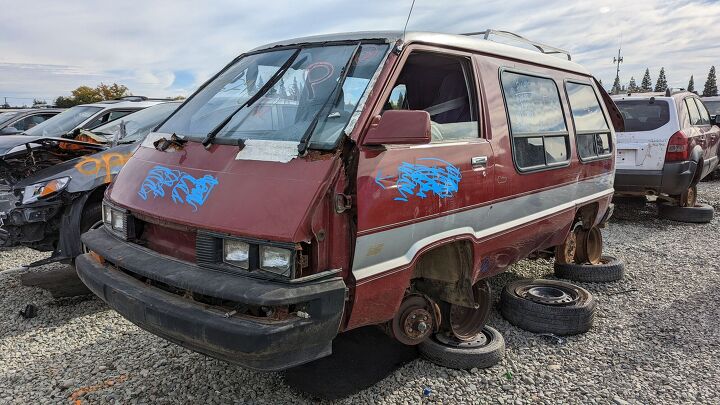
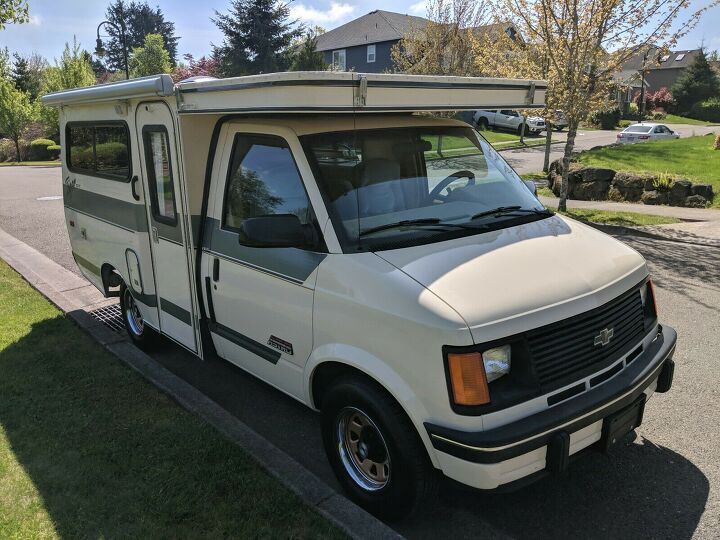

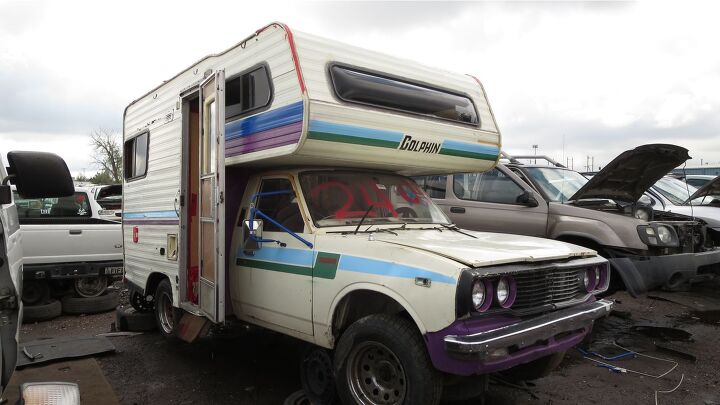



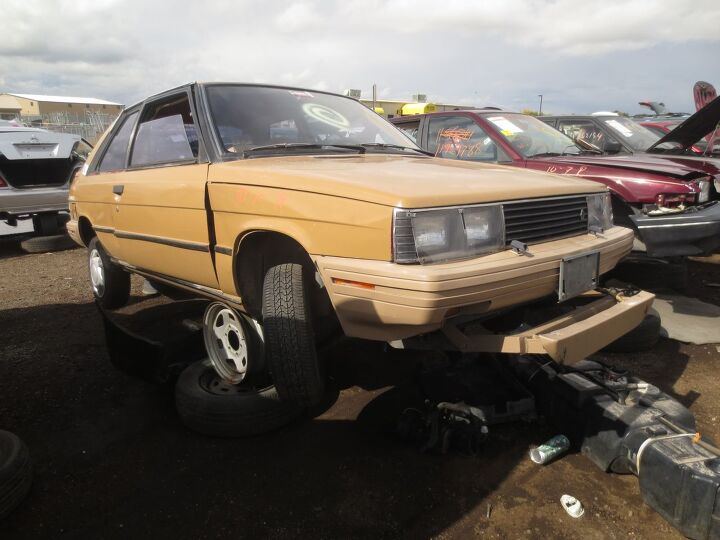
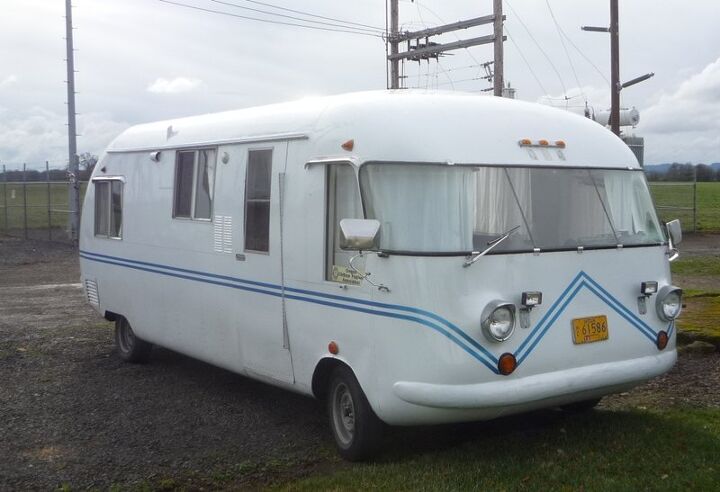












Recent Comments